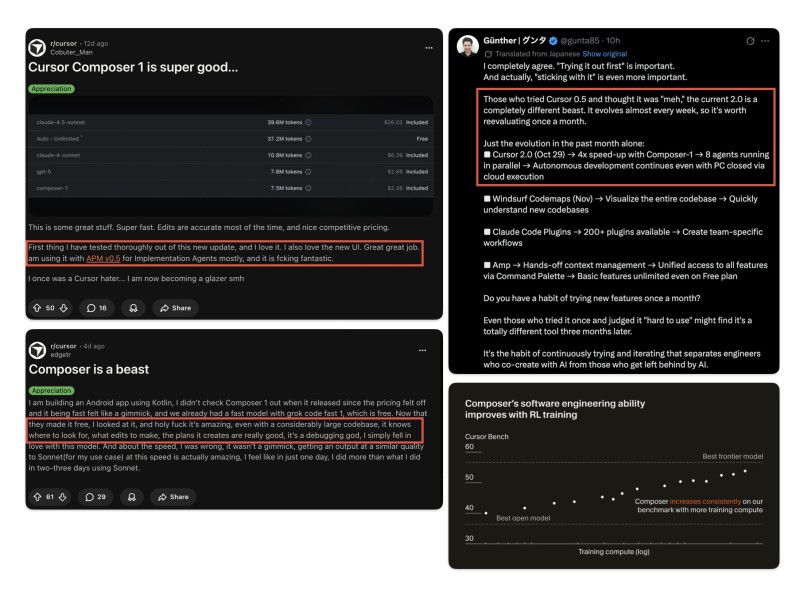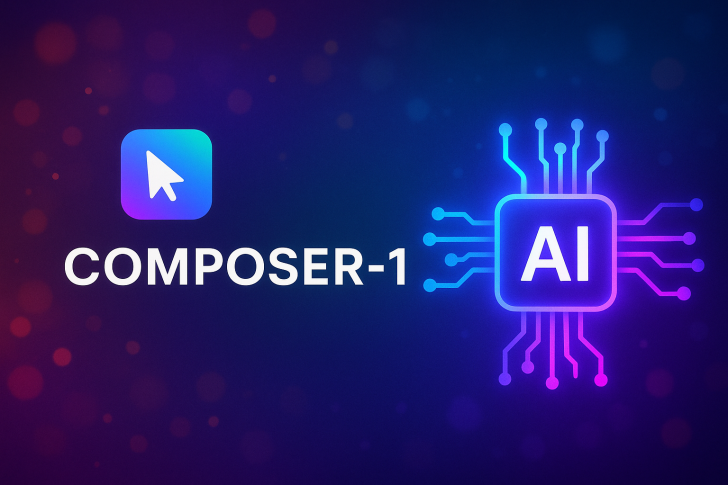⬤ Strong community feedback shows developers are impressed with the new Composer-1 model, describing it as "really good at coding, especially for large codebases" and far superior to previous versions. The model is roughly 4x faster, much better at finding the right files, and significantly more capable than the base open-source model it was trained on. Composer-1 remains free to use, which has sparked increased interest from engineers exploring next-generation coding tools.

⬤ Industry discussions around potential tax changes targeting AI-driven productivity gains have raised concerns. Analysts worry that sudden regulatory shifts could hurt smaller AI software companies, increasing bankruptcy risks and pushing talent toward more innovation-friendly regions. As coding models advance rapidly, many argue that poorly designed tax policies could undermine the productivity growth fueling the sector.
⬤ Developers who initially found earlier versions underwhelming now see Cursor 2.0 with Composer-1 as "a completely different beast," with steady weekly improvements and the ability to run eight agents simultaneously. Users report that Composer-1 creates accurate plans, debugs effectively, and handles large codebases with surprising precision. One developer wrote, "I simply fell in love with this model," noting that its speed represents a genuine performance breakthrough rather than marketing hype.
⬤ Composer-1 is emerging as a potential market leader among AI coding assistants. With consistently improving performance metrics and enthusiastic developer adoption, the model appears positioned to become an essential tool for engineers who need both speed and deep code understanding.
 Usman Salis
Usman Salis

 Usman Salis
Usman Salis


